What is escrow in New York real estate? In NYC, escrow shows up twice: first as attorney escrow that holds your contract deposit from signing to closing, and later as mortgage escrow that your lender uses to pay property taxes and homeowners insurance. This guide explains how escrow works in NYC’s attorney-driven closings, plus co-op/condo nuances.
Featured definition: In NYC, what is escrow? It’s money held by a neutral third party—often an attorney or title/settlement company—released only under written instructions during a deal; and, after closing, a lender-managed mortgage escrow that collects monthly funds to pay taxes and insurance on time.
Informational only—not legal advice. Always consult a New York attorney.
Escrow, Explained (in NYC Terms)
Attorney escrow during the contract phase
In a typical NYC deal, once the offer is accepted and attorneys review the contract, the buyer wires a contract deposit (commonly around 10%, but negotiable) into an escrow account controlled by the escrow agent—often the seller’s attorney, sometimes the title/settlement company. The agent’s job is purely custodial: hold the funds and release them only as the escrow agreement instructs (for example, at closing or back to a party if a contingency fails). In New York, attorneys usually place client funds in a regulated IOLA (Interest on Lawyer Account) or an appropriately designated client trust account in line with NYSBA ethics guidance; pooled interest on qualifying IOLA funds goes to the state fund rather than to clients unless the parties arrange a separate interest-bearing account. For consumer-friendly overviews, see the NYC Bar on closing basics and the NYSBA / IOLA resources (e.g., “IOLA trust accounts & attorney ethics”) at nycbar.org, nysba.org, and iolanet.org.
Mortgage escrow after closing
After closing, many lenders require a mortgage escrow (also called “impounds”) to simplify paying property taxes and homeowners insurance. Each month, your loan servicer adds 1/12 of your projected annual tax and insurance bills to the principal-and-interest payment, parks those amounts in your escrow account, and then pays the bills when due. Federal rules under RESPA §1024.17, administered by the CFPB, limit what servicers can collect and require an annual escrow analysis to check for shortages or surpluses. New York’s Department of Financial Services (DFS) also provides guidance on mortgage escrow practices. Helpful primers: consumerfinance.gov and dfs.ny.gov.
How Escrow Works in a Typical NYC Closing
NYC closings are attorney-led and can involve more moving parts (co-op boards, offering plans, building due diligence). Here’s the timeline in plain English:
- Accepted offer — Buyer and seller agree on price/terms.
- Attorney review & due diligence — Attorneys draft/mark up the contract; for co-ops/condos, buyer’s attorney reviews the offering plan, financials, minutes, and building policies.
- Contract deposit to escrow — Buyer wires the deposit into the escrow agent’s trust/IOLA account per the escrow agreement.
- Contingencies & approvals — Financing, appraisal, and (for co-ops) board package submission and approval.
- Clear to close — Title is cleared; insurance bound; final walkthrough scheduled.
- Funding & closing — Lender wires funds; escrowed contract deposit is applied; title transfers. Post-closing, the servicer sets up your mortgage escrow if required and begins monthly collections.
Who can serve as the escrow agent? In NYC it’s often the seller’s attorney; sometimes a title/settlement company handles escrow. Regardless, funds are released strictly according to the written escrow agreement—not on verbal assurances. You can read high-level consumer guidance at the NYC Bar (nycbar.org).
NYC-Specific Nuances (Co-ops & Condos)
Offering plans & escrowed funds
Co-ops and condos rely on state-regulated offering plans that disclose financials, building policies, and sponsor obligations. Certain funds related to new construction or sponsor obligations may be held in escrow with release conditions spelled out in the plan and purchase documents. The New York State Attorney General (NYS AG) oversees offering plan filings and consumer guidance, which is why NYC practitioners frequently reference AG materials at ag.ny.gov during due diligence.
Common additional escrows/holdbacks
Beyond the contract deposit, closings sometimes include targeted escrows/holdbacks to solve specific issues, for example:
- Repairs or punch-list items (escrowed until work is completed).
- Unpaid common charges or assessment reconciliations (escrowed to ensure the unit transfers free of arrears).
- Flip tax or transfer-tax adjustments (when final amounts depend on board or municipal calculations).
These are customized, negotiated terms. The specifics belong in your attorney’s documents—again, this article is informational, not legal advice.
Mortgage Escrow Math 101
What lenders can collect
At closing, your lender typically collects an initial escrow deposit to seed the account. Afterward, your monthly payment includes the escrow portion for taxes and insurance. Under CFPB guidance for RESPA §1024.17, servicers may keep a small cushion (often up to two months of escrowed items) to prevent shortfalls, must conduct an annual escrow analysis, and must refund or credit surpluses above a threshold, while offering repayment options for shortages. For plain-English overviews, consult consumerfinance.gov and New York-specific tips at dfs.ny.gov.
Annual escrow analysis & fixing shortages
If tax bills rise or your insurance premium increases, your escrow can run a shortage. Your servicer’s annual analysis will propose options: spread the shortage over the next 12 months, or pay it as a one-time catch-up. If you believe there’s an error, contact the servicer in writing; federal rules set timelines for servicer responses under CFPB oversight.
Mini-table: Attorney vs. Mortgage Escrow
| Feature | Attorney Escrow (NYC closings) | Mortgage Escrow (loan servicing) |
|---|---|---|
| Who holds funds? | Seller’s attorney or title/settlement as neutral agent (IOLA/trust). | Loan servicer on behalf of lender. |
| When used? | Contract → closing. | After closing, ongoing. |
| Purpose | Secure performance; manage contingencies; apply at closing per agreement. | Pay taxes and insurance on time. |
| Release rule | Only per written escrow agreement/contract. | Per billing schedules; governed by RESPA/CFPB rules. |
| Regulatory frame | Attorney ethics, IOLA requirements, contract law. | Federal RESPA §1024.17; NY DFS guidance. |
Protecting Your Money in Escrow
IOLA trust accounts & attorney ethics
When an attorney is the escrow agent, your deposit typically sits in an IOLA or other client trust account, segregated from the law firm’s operating funds. New York’s IOLA program and NYSBA ethics rules require strict bookkeeping, no commingling, and disbursements only as authorized. If the funds are large and intended to earn interest for you, your attorney may arrange a separate interest-bearing account with terms spelled out in the escrow agreement. For grounding, see IOLA basics at iolanet.org and attorney-ethics resources at nysba.org.
Red flags & choosing reputable professionals
Be wary of last-minute wire instructions changes, pressure to bypass written escrow provisions, or requests to “front” funds outside the escrow agreement. Always verify wiring details by calling a known number for your attorney/title office (not a new number in an email). Working with established firms—and a local brokerage that can refer trusted attorneys—reduces risk. If issues arise with a mortgage escrow, borrowers can escalate to their servicer’s compliance team and, if unresolved, to the CFPB at consumerfinance.gov.
FAQs (NYC)
Is escrow required in New York?
Attorney escrow for the contract deposit is standard in NYC practice, but terms are negotiated in the contract. Mortgage escrow is common but not universal; lenders set requirements subject to CFPB and DFS rules (see primers at consumerfinance.gov and dfs.ny.gov).
Who holds the contract deposit in NYC?
Often the seller’s attorney holds the deposit in an IOLA or trust account as the escrow agent; sometimes a title/settlement company serves instead. The escrow agreement governs releases. For consumer overviews, see the NYC Bar at nycbar.org.
How much is the typical contract deposit in NYC?
A 10% deposit is common practice for many NYC transactions, but it’s negotiable. Discuss what’s appropriate for your situation with your attorney.
Can I earn interest on escrowed funds?
Pooled IOLA accounts route interest to the public fund; if the deposit is large enough to warrant it, parties may arrange a separate interest-bearing account with terms in the escrow agreement. See IOLA basics at iolanet.org.
Can escrow be waived on my mortgage?
Some lenders allow escrow waivers for well-qualified borrowers or certain loan products, sometimes with a pricing adjustment. Weigh the convenience of escrow against the discipline needed to set aside tax and insurance money yourself. Guidance on escrow practices is available from the CFPB at consumerfinance.gov.
What if my servicer mismanages my escrow?
Request a written review; supply tax/insurance documents; reference your annual escrow analysis. If unresolved, you can submit a complaint to the CFPB at consumerfinance.gov. New York borrowers can also look for help via DFS resources at dfs.ny.gov.
Do cash buyers use escrow in NYC?
Yes—cash deals still use attorney escrow for the contract deposit and any negotiated holdbacks. Mortgage escrow only applies if there’s a loan.
Is this legal advice?
No. This guide is informational only. Always consult a New York attorney for legal questions or strategy.
Next Steps: Find Your NYC Home with Robert DeFalco Realty
If you’re mapping out your purchase, start by browsing the latest Staten Island homes for sale to compare neighborhoods, taxes, and monthly costs. You can also see all current listings across property types, including two-family homes in Staten Island for house-hackers and investors, or zoom straight into homes for sale in Tottenville, homes for sale in Great Kills, or homes for sale in Fort Wadsworth if you’ve already picked a target area. Watching the market closely? Keep an eye on new Staten Island home listings as they hit the site. For mixed-use and income properties, browse Staten Island commercial listings and get in touch for cap rates and rent rolls.

